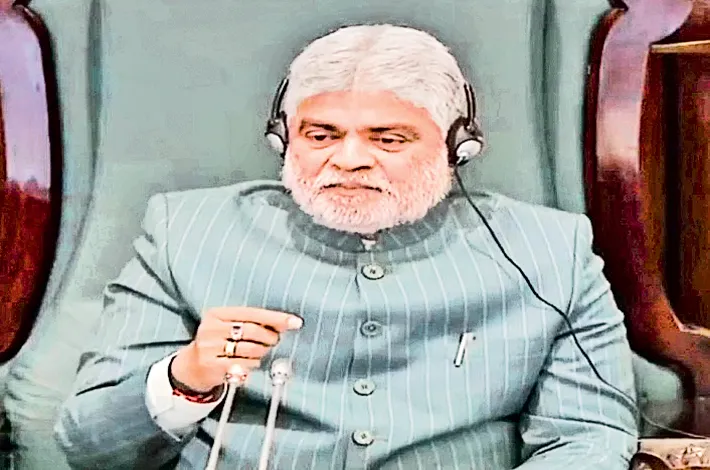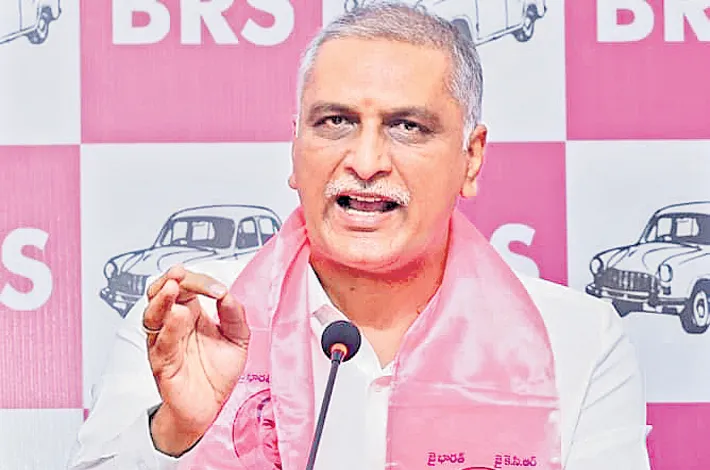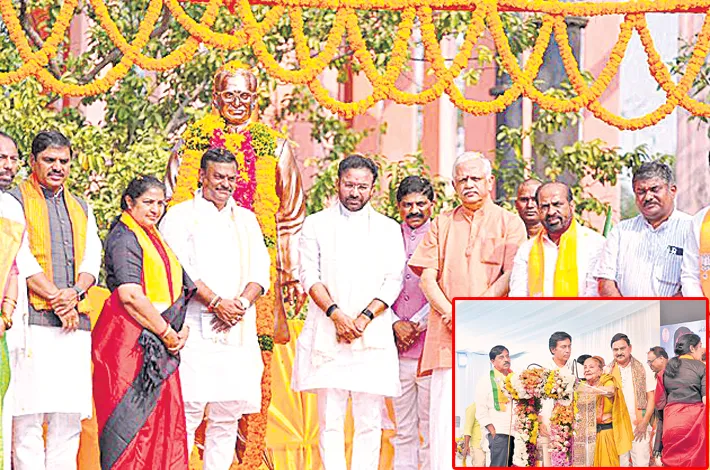Decide or face punishment: SC
18-11-2025 12:00:00 AM

metro india news I hyderabad
In a blistering hearing that exposed the deepening crisis over Anti-Defection law, the Supreme Court on Monday branded Telangana Assembly Speaker Gaddam Prasad Kumar’s inaction on disqualification petitions against 10 BRS MLAs who defected to Congress as “gross contempt of court” and ordered him to decide the cases by next week or face contempt proceedings that could see him jailed over the festive season.
“It’s for him to decide whether he wants to take action or face contempt by the court… This is gross contempt of court… Finish it by next week or face contempt, it is for him to decide. We have already held that he doesn’t enjoy constitutional immunity when considering these matters. He has to decide where (he) has to celebrate his New Year’s Eve,” the three-judge bench presided over by Chief Justice of India B R Gavai, addressing Senior Advocate Dr A.M. Singhvi who appeared for the Speaker, observed in the court.
The sharp remarks came during the hearing of a contempt petition filed by BRS working president K.T. Rama Rao after the Speaker failed to meet the Supreme Court’s July 31, 2025 deadline of three months to decide the petitions. The court had then set aside a Telangana High Court order and directed “expeditious” disposal, invoking its Maharashtra precedent that Speakers must act within a reasonable period.
The 10 MLAs who defected to Congress are: Pocharam Srinivas Reddy (Banswada), Kale Yadaiah (Chevella), Dr M. Sanjay Kumar (Jagtial), Gudem Mahipal Reddy (Patancheru, Bandla Krishna Mohan Reddy (Gadwal), Arekapudi Gandhi (Serilingampally) T. Prakash Goud (Rajendranagar), Danam Nagender (Khairatabad), Kadiyam Srihari (Station Ghanpur), Tellam Venkat Rao (Bhadrachalam).
These legislators switched sides after the Congress victory in December 2023, helping the ruling party push its strength well beyond its original 64 seats in the 119-member House. BRS accused the Speaker of shielding the defectors to protect the government’s majority. BRS legal team called the delay a deliberate attempt to “murder democracy”. The court rejected the Speaker’s plea for more time, noting that notices had already been issued and responses filed months ago.
Disqualification would trigger by-elections in all ten constituencies posing a big challenge to Chief Minister A. Revanth Reddy’s government and the ruling party. BRS leaders celebrated the order as a “victory for constitutional morality”, while the Congress camp insisted the MLAs had effected a legitimate merger under Paragraph 4 of the Tenth Schedule and that the Speaker was only following due process.
Political analysts described the one-week deadline and the New Year jail remark as the strongest judicial warning ever issued to a Speaker in a defection case, signalling that the court is no longer willing to tolerate partisan delays.
When BRS held Power: The Same Game, Different Players
During the decade that TRS/BRS ruled Telangana, defections overwhelmingly favoured the pink party and were routinely protected by its Speakers. From 2014 to 2023, several TDP and Congress MLAs were absorbed into the TRS/BRS, swelling its strength from 63 to over 100 seats at its peak and reducing opposition parties to near irrelevance. Most were granted immunity by retroactively invoking Paragraph 4 of the Tenth Schedule — the same “merger” clause the present defectors are relying on.
In June 2019 alone, 12 of Congress’s 18 remaining MLAs (including Sabita Indra Reddy, Sudheer Reddy, Chirumarthi Lingaiah, Haripriya Naik) merged with TRS under the two-thirds clause and escaped disqualification. Over the same period, at least 12 of the 15 TDP MLAs who won in 2014 – among them Talasani Srinivas Yadav (Sanathnagar), C Dharma Reddy (Parkal) Teegala Krishna Reddy (Maheswaram), Errabelli Dayakar Rao (Palakurthi), Prakash Goud (Rajendranagar), and the last two TDP MLAs Mecha Nageshwara Rao and Sandra Venkata Veeraiah – also joined TRS in the second term. At its peak, TRS strength swelled from 63 to over 100 seats while opposition parties were virtually wiped out.
A glaring example was the June 2019 “merger” of the Congress Legislature Party. Though officially presented as 12 of Congress’s remaining 18 MLAs (exactly two-thirds) joining TRS in one go, the reality was staggered: the legislators defected individually or in small groups from March to June 2019. The Speaker simply accepted the merger plea and closed the file, sparing all of them disqualification.
Even more bizarre was the case of Talasani Srinivas Yadav. He formally joined TRS on October 29, 2014, and was inducted into KCR’s cabinet in December 2014 — yet he continued as an official TDP MLA and minister for over 15 months until March 2016, when the remnants of the TDP Legislature Party were “merged” with TRS. For more than a year, a TDP legislator openly served in a TRS cabinet without facing disqualification, exposing how loosely the merger clause was interpreted when it suited the ruling party.
Yet the same regime showed no such leniency when the shoe was on the other foot. In January 2019, Legislative Council Chairman (and TRS leader) K. Swamy Goud disqualified three BRS-nominated MLCs – K. Yadava Reddy (Karimnagar Graduates), R. Bhupathi Reddy (Nizamabad Local Bodies), and S. Ramulu Naik (Adilabad Local Bodies) – for anti-party activities after they leaned towards Congress before the 2018 elections. They remain the only known disqualifications under the Tenth Schedule during the entire BRS decade, underlining the selective application critics long accused the party of.








